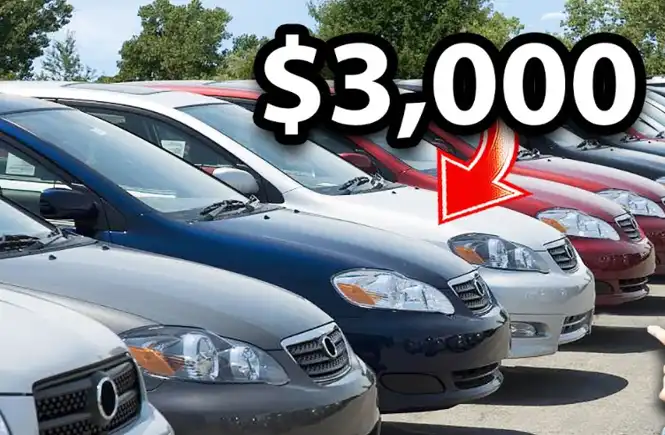When faced with a $3,000 repair bill for a car valued at $2,000, many car owners find themselves grappling with a difficult decision: should they invest in the costly repairs or opt for a new vehicle? This dilemma is not uncommon, and there are several factors to consider before making the final call.

Understanding the “$3,000 in Repairs”
Before we delve into the decision-making process, it is crucial to examine the potential repairs that account for the hefty $3,000 price tag. These repairs may include fluid changes, timing belt replacement, hose replacements, vacuum hose repairs, serpentine belt(s) replacement, tire replacements, brake repairs, and filter changes. Understanding the scope and necessity of each repair is essential to make an informed decision.
To Keep or Junk It? Evaluating the Car’s Longevity
One crucial factor to consider is whether these repairs can extend the car’s lifespan significantly. If the repairs primarily focus on regular maintenance, such as fluid changes and filter replacements, it might make sense to proceed with the repairs. Regular maintenance can enhance the car’s reliability and prolong its life, potentially allowing it to last another 3-10 years.
The Danger of the Death Spiral
However, if the $3,000 repair is for a single issue or an accumulation of various problems, it could lead to a “death spiral” scenario. The death spiral refers to a situation where you keep investing money in repairs, yet the car continues to experience new issues shortly after each repair. This cycle can drain your finances and prove to be a futile endeavor in the long run.
The Case for Buying a New Car
Purchasing a new vehicle has its advantages. It comes with a warranty, ensuring that major repairs will likely not be necessary for several years. Additionally, new cars have the latest safety features and technology, providing peace of mind on the road. Moreover, new car owners typically take better care of their vehicles, leading to potentially fewer issues over time.
Make and Model Considerations
The decision to repair or replace the car may also depend on the make and model of the vehicle. Different brands and models have varying long-term reliability and repair costs, making it essential to consider this factor when weighing your options.
Cost Breakdown and DIY Solutions
A closer look at the individual repair components can reveal opportunities to save on expenses. For instance, brake repairs and installation of a catalytic converter can be accomplished at a lower cost if you do it yourself or find a mechanically inclined friend to assist. Shopping around for the best deals on quality tires can also significantly reduce the repair bill.
FAQs:
Q: Are the $3,000 in repairs necessary for the car’s functionality?
A: The necessity of the repairs depends on the nature of the issues. Some repairs might be critical for the car’s safety and functionality, while others may be optional maintenance tasks.
Q: Can I negotiate the repair costs with the mechanic?
A: Yes, it’s possible to negotiate repair costs, especially if you can obtain competitive quotes from other repair shops. However, be cautious not to compromise on the quality of service.
Q: Should I consider selling the car for its current value instead of repairing it?
A: Selling the car for its current value might be an option to consider if the repairs exceed the car’s value significantly. However, it’s essential to weigh the cost of a new vehicle against the repair expenses.
Q: Can I get a second opinion on the repairs needed?
A: Yes, seeking a second opinion from another reputable mechanic is a wise approach, especially if you have doubts about the repair recommendations.
Q: How can I estimate the overall cost of car ownership, including maintenance and repairs?
A: You can estimate the total cost of car ownership by considering the car’s purchase price, average maintenance costs, insurance, fuel expenses, and potential repair costs over a given period.
Q: What factors should I prioritize when deciding whether to repair or replace my car?
A: Key factors to prioritize include the car’s safety, its current condition, the projected lifespan after repairs, the cost of repairs compared to the car’s value, and your budget for a new vehicle.
Conclusion:
Deciding whether to spend $3,000 on car repairs for a $2,000 car requires careful consideration of multiple factors. Assessing the nature of the repairs, the car’s overall condition, and its projected longevity after repairs are essential steps. If the repairs are mostly routine maintenance, investing in them may be a wise decision to extend the car’s life.
However, if the repairs are for a single significant issue or lead to a costly cycle of continuous repairs, opting for a new car might be more sensible in the long run. DIY solutions, negotiating repair costs, and understanding the value of your car will aid you in making an informed choice that aligns with your budget and needs. Remember, each situation is unique, so carefully evaluate your options before making a final decision.
